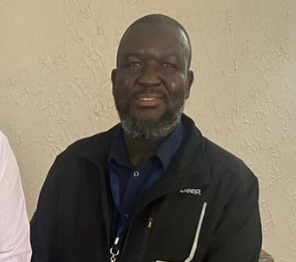A MANAGER at ETG Curechem (Pvt) Ltd, Ashworth Chiringa has appeared before the Harare Magistrates’ Court accused of defrauding his employer of US$38 000 through a fictional billing system.
The 45-year-old explosive manager is jointly charged with Simbarashe Chitate, 21.
The two, who appeared before magistrate Ruth Moyo, will be back in court on March 19, after being freed on US$200 bail each.

Ashworth Chiringa was caught with hands in ’till’
According to court documents, ETG Curechem owns an explosive storage magazine in Mutorashanga and sells explosives, with all payments required to be done through the finance department.
Court papers revealed that Chiringa was hired as an explosive manager by the company in June last year with his key duties being to sell and market explosives.
Prosecutor Rufaro Chonzi told the court that the company used SAP accounting systems where sales invoices were to be followed by the sales team to ensure every customer who purchased the explosives was issued with an invoice that would be entered into the system as a replica of the manual invoice.
The court heard that the company had also put in place a credit facility, but demanding clients to get prior approval arrangements.
Chiringa allegedly created his own system where he would generate manual invoices to collect stocks from the magazine master and would then cause the manual invoices not to be entered into the SAP system.
Chiringa reportedly teared off the invoices of such sales from the invoice book before he and Chitate collected stocks, sell them and pocketed the proceeds.
At times, the court heard, Chiringa would also instruct the magazine master to release some stock to his customers, which he would collect together with Chitate.
He reportedly sold some of the stocks to his customers and took the money on the lie that the customers had bought on credit.
Chiringa and Chitate ran out of luck when the company made a follow-up of the payment on the customers who were alleged to have bought on credit but discovered that the customers had bought from the two using cash, prompting the company to institute investigations.
Preliminary investigations revealed that some of the customers who were claimed to have bought on credit did not exist.
Due to the scam, the company lost a total of US$38 652 and nothing was recovered.



